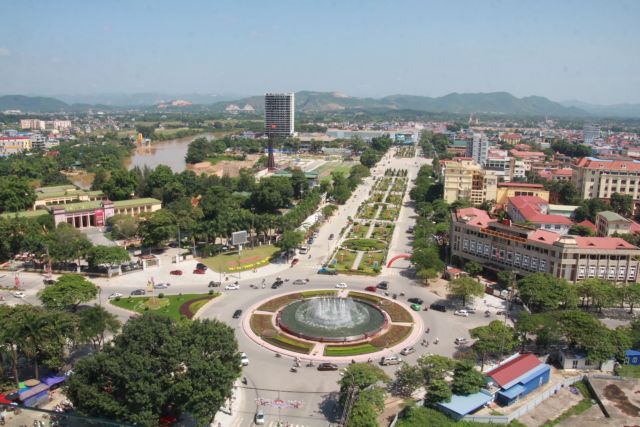It aims to diversify its investment promotion efforts, including by holding regular meetings and interactions with large domestic and international companies to apprise them about its potential and investment climate.

The Central Highlands province of Dak Lak is seeking to improve its business and investment climate to become an attractive investment destination, according to the provincial Department of Planning and Investment.
Dinh Xuan Ha, the department’s director, said Dak Lak would continue to move up in the annual Provincial Competitiveness Index (PCI) rankings since it has assigned top priority to administrative reform.
It aims to diversify its investment promotion efforts, including by holding regular meetings and interactions with large domestic and international companies to apprise them about its potential and investment climate, he said.
Top priority is also being given to ensuring public order and creating conditions to ensure businesses feel secure about investing, he said.
The province would work with the Ministry of Foreign Affairs and other agencies to obtain up-to-date information on its partners, he said.
It would prioritise investment in high-tech agriculture and food processing industry, especially for exports, and industrial-scale livestock breeding, he added.
In June, the province licensed the first phase of the VND360 billion (US$15.46 million) DHN high-tech livestock complex in Ea M’Droh commune, Cu M’gar district.
Vu Manh Hung, Chairman of Hung Nhon Group, its owner, said by the end of next year the complex is expected to supply high-quality pork that meets international standards to the domestic market.
“Dak Lak has favourable conditions to develop high-tech livestock farming,” he said.
The Hung Nhon Group has tied up with the De Heus Group of the Netherlands to build a hi-tech agricultural complex, expected to cost VND1.5 trillion ($64.49 million), in the province by 2025.
According to the department, the sectors most appealing to investors are wind and solar power, urban development, eco-tourism, resorts, and agricultural production.
Six large renewable energy plants have been completed and commissioned.
They include five solar farms with a total capacity of 190MW and costing VND4.88 trillion, and a wind power plant with a capacity of 28.8MW built at a cost of VND1.8 trillion.
Five other solar plants with a total capacity of 600MW are under construction. To cost VND15.402 trillion, they are expected to begin commercial generation by the end of this year.
Recently the province has sought the Government’s approval for a VND7.7 trillion wind power project in Cu M’gar District to be built by the AMI AC Renewables Dak Lak Company Ltd.
Ha said the province has achieved average annual economic growth of more than 8 per cent since 2015.
The province has gradually shifted from agriculture, forestry and fishery to industry - construction, he said.
The PCI shows it improved many indicators in 2019, especially the index of business support services, to rank a creditable sixth out of the country’s 63 provinces and cities.
The province has an airport and a fairly well-developed road network, with many important national highways passing through it.
With nearly 540,000ha of agricultural lands, it grows a number of high-value commercial crops such as coffee, rubber and pepper.
Dak Lak has an abundant workforce of more than 900,000, including 400,000 well-trained workers. — VNS





